If you’re in the hunting world, no doubt you’ve heard of or seen (on social media) something about a coffee called “Hunter’s Blend.” We thought you’d like to know more about it, and why this special coffee company exists, so we talked Paul Kurtz. Paul, along with brothers-in law Ken Beachy and Mike Swartzentruber, imports and roasts coffee beans for Hunter’s Blend.
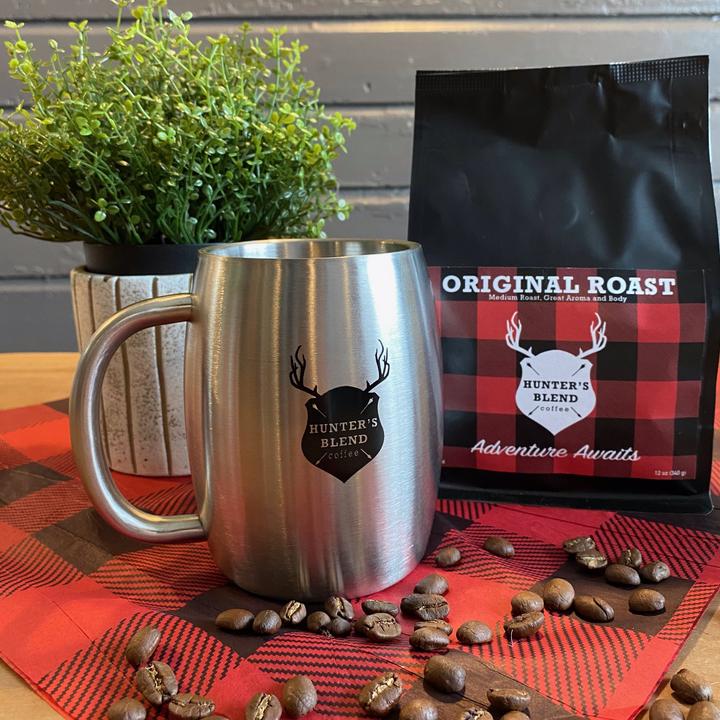
We are especially pleased to know that as a result of this business, women in Third World countries have been given opportunities to work – as opposed to being trafficked in the sex trade industry.
Here’s what Paul had to say about Hunter’s Blend, the world of coffee and the company’s mission.
We heard there’s more to this story than importing coffee beans.
I’ve been in coffee around 18 years. I was working with a church-based organization in Central and South America and East Africa – all places that are coffee exporters. We were often being asked for handouts. … You can’t outgive the poverty. You can’t give enough money to make people say, ‘Hey, you can stop now. I’m sustainable.’ A lot of our help was hindering. I just began to dream. My wife and I took a look at what is broke or what could we change about poverty. Providing a market for something they grow, coffee was the thing that was in their hand. It was what they were growing and they were selling it to nations that did not grow it. And yet, we [buyers] were setting the price often to our favor and asking them to produce coffee below the cost. … For four or five years, we studied it and finally began roasting and building a company, Hemisphere Coffee Roasters.
How did Hunter’s Blend spin off?
We’re three brothers-in-law, and we love to hunt. We’re together at holidays, talking coffee, talking hunting. And that’s where the idea of a coffee that really got behind the values and the loves that we had and offered a product to people that we knew were buying coffee. I often say, coffee makes the hunting world go around. The first person in the morning, you put coffee on. That’s the hunting camps that I grew up in. We take coffee, kind of, for granted. Now, we can get hunting clothing that supports our causes. We don’t have to go to REI and buy high-tech fabrics and yet, we go companies that I mean, quite possibly, have values and their profits that they earn are probably paying for the Humane Society or causes that are working to shut down what we love to do. So why can’t hunters and conservationists have a coffee that supports their causes?
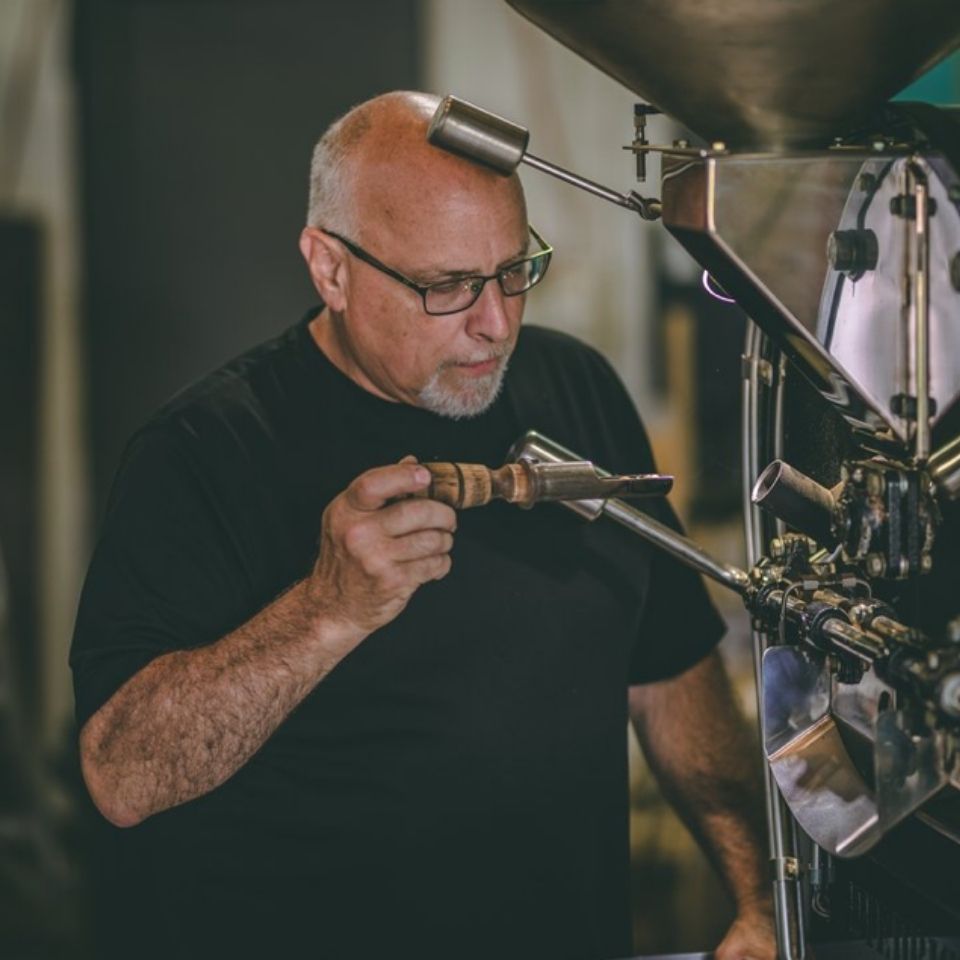
What do you see happening in the world of coffee growing?
I’m very concerned with what I see in coffee producing countries. There’s a phenomenon that people much smarter than I have written about, but I travel to Kenya, Uganda, and Peru Colombia South America, East Africa, and then all over El Salvador, Guatemala, Honduras. Costa Rica and Nicaragua Central America. And I, I can’t quantify it. But there’s a term. We call the “feminization of coffee.”
There’s no money in coffee. You have these family farms where the man will go to the urban center or to the city for a job and leaves the wife, and a lot of times small children, back in the smaller villages to work the coffee and it is extremely hard work. It is breaking down a whole society in these countries … but men in the city, they’ll have a mistress. So have multiple families actually. They’re sending money back to the village, but they never go home. So, there’s abandonment; there’s children, many of them don’t know their fathers.
There’s also the “graying of coffee,” where children say, “I do not want the life of my parents.” They get an education and they stay out of that world.” I see an older and older or population growing coffee. And so, the concern that a lot of us in specialty grade, this talk 6% of coffee that’s being grown and shipped is that it’s going be available like, fine wine, you know, it’s going to be so expensive. The common person can’t afford it. The dissemination of coffee, it’s real, it’s observable. That’s what’s going on, particularly in Central and South America.
What is Hunter’s Blend these days?
We’re working a lot in Thailand. We imported three different shipments from Thailand over the past four years. The small coffee company that I have been working with is called Abonzo Coffee. It’s among the Akha hill tribe in the north part. They are a tribal group and most of them were growing opium in the past. The government would help them if they would pull out their poppy seed plants and plant coffee, they would get free plants. So they are reluctant coffee growers; they are tea drinkers. They grow coffee as a cash crop, but they’re they are just starting.
You have mentioned that coffee has been a catalyst to changing women’s lives in Thailand. How so?
When there’s no jobs in the villages, in Thailand, the city of Bangkok, there’s a sex industry – the massage places that Europeans and Americans flock there for holidays. It’s so sad, but people representing these jobs come into a village and, you know, make deals with parents to send their kids. It’s crazy what real poverty does to people; you got seven kids and you’ve got one that maybe is move attractive, so you sell that one off so that you can get a check in and at least the other six kids can live.
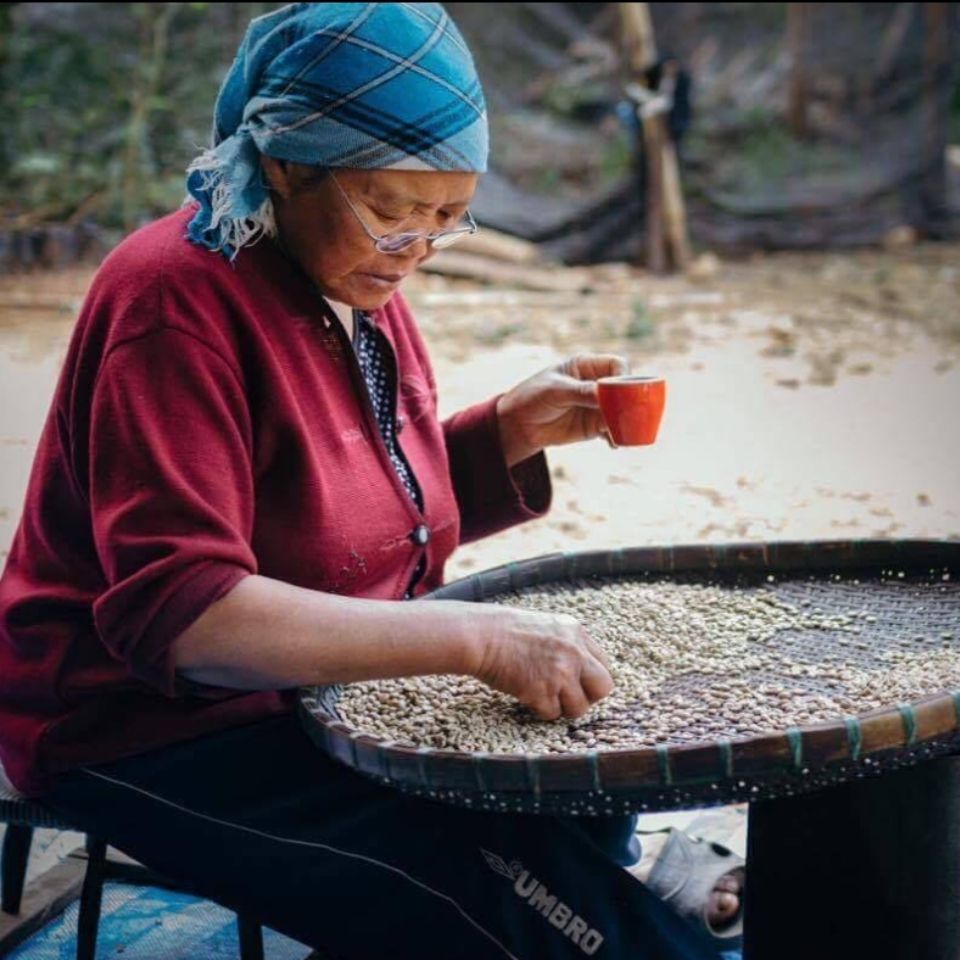
Abonzo Coffee started in this little village of Doi Chung and 80 women hand-sort all our coffee that we buy. We buy all the coffee that they export. When, I first went to this village, it was quiet. It was just dirty. … Now, when you go, I always wish I could take people for a moment and they could see the houses that were just ugly are now they’re painted. There’s flowers on the porches. There’s children running around. It’s like this whole village has changed because of jobs. When the women heard there was this coffee company looking for employees, many of these women came home and, it’s a beautiful thing. It’s happening in other villages, across northern Thailand, because coffee is being valued.
You mentioned that the Japanese love Thailand’s coffee, and are offering higher prices?
The love the coffee. The price is two- to three-times what I paid for coffee. There’s so much pressure on so little coffee. I tell the Abonzo Group that if they can get that kind of profit from Japan, by all means, sell it there. So, we’ve actually just bought our first load container from South China, from a kind of a sister co-op that is working among the Mung tribe – with the very same story of exploitation and sex trafficking. It doesn’t quite have the same sweetness that the Thai coffee did. I’m hoping to get back into Thai coffee, but I just want to be clear that right now, Hunter’s blend is actually a Chinese coffee.
More About Coffee
Yeah, it’s a very hands-on product. Everything that you grind was handpicked. I think Brazil and Hawaii have some machinery that shakes the whole tree little bit, like harvesting macadamia nuts or something, but most coffee around the world is hand-picked and sorted. Half of our coffee comes from China and half from Nicaragua.
It really is because of our other company, Hemisphere, that we can have access to these direct trade coffees because Hemisphere is much larger.
What’s happening in Nicaragua in the coffee picking world?
In Nicaragua, there might be a hundred people picking and 95% of them are ladies. There’s a high percentage of cancers. There was a need for a clinic, so the farmer took some resources of some of the profits from our purchases, and now there’s a women’s clinic and birthing center on the edge of a farm to serve the community. That is amazing because I see so many, I’ve met many farmers, they get a little extra money there soon, driving a new truck, or they have a new house. And this guy, Diego Chavez, with this team, he just feels he is doing a sort of a “blessing” to his community. That’s the word he uses, in fact. There’s now a school for the children; there’s over a hundred kids running around the farms and they’re now in a school. If the landowner puts a building up, the government will supply the teacher.
In May and June, when the coffee’s all sold, usually, there’s no work, is when starvation hunger is an issue and wage. Diego tries to work everybody year round so that that has no last few years has not been an issue.
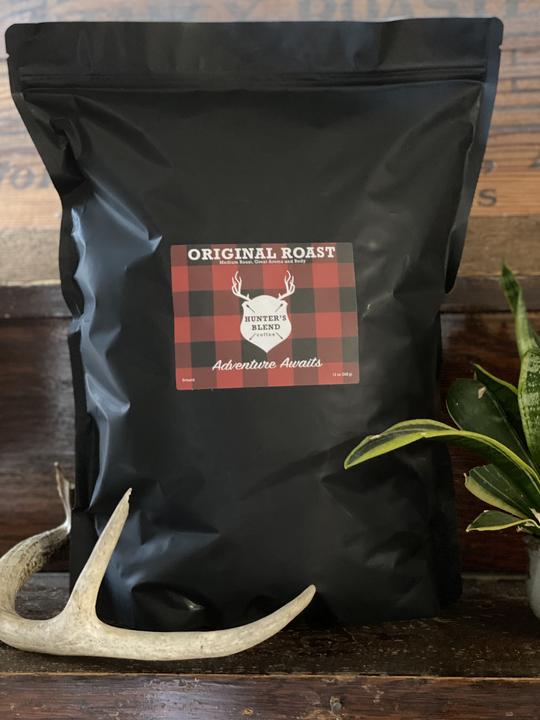
What makes your coffee delicious?
When you start with really good coffee, it’s like saying you rolled a ball down a hill; it’s really easy to make good coffee. If there’s money in coffee, the farmer will do more than 100 steps to make that coffee good. We call it ‘very approachable coffee.’ When you put a farmer’s name on that sack of Diego Coffee, there’s that pride of sending to Paul my best coffee, they do the steps necessary. We’re getting a really good, high scoring coffee that was respected at the farm. Then, we roast it to where the coffee will tell us where it’s the sweetest. If somebody likes bright citric, almost acidic, bitter coffee, we can produce that … our Dawn’s Early Light is that – there’s a group of people that like a real light, roasted coffee. The Hunter’s Blend is the smoother, all-day-drinking coffee that 95% of the people would like.
What’s in the future?
We got great big plans for the future. What what we’re trying to, whenever we get a chance to talk to groups of people, is to encourage people to think of coffee as part of their gear. That they should make decisions about their coffee just as they would their clothing. I’m not encouraging people to be a cancel-culture, but the fact is it is big business. Coffee is second only to oil in in the amounts of dollar volume traded. It’s a huge business – 25 million families count on their annual incomes from the production of coffee. I’m trying to bring that soberness to people to think about think about where you spend your money and make it integrate with your lifestyle. And so we’re trying to educate people about the importance of coffee. It’s big business and think about it and inviting people to join us on that journey.
What I’m doing is using coffee … It’s just a tool there, a whole population of people growing something that have no hope for a better life. And coffee is something that that they have. But they also have one other thing, and that is cacao.
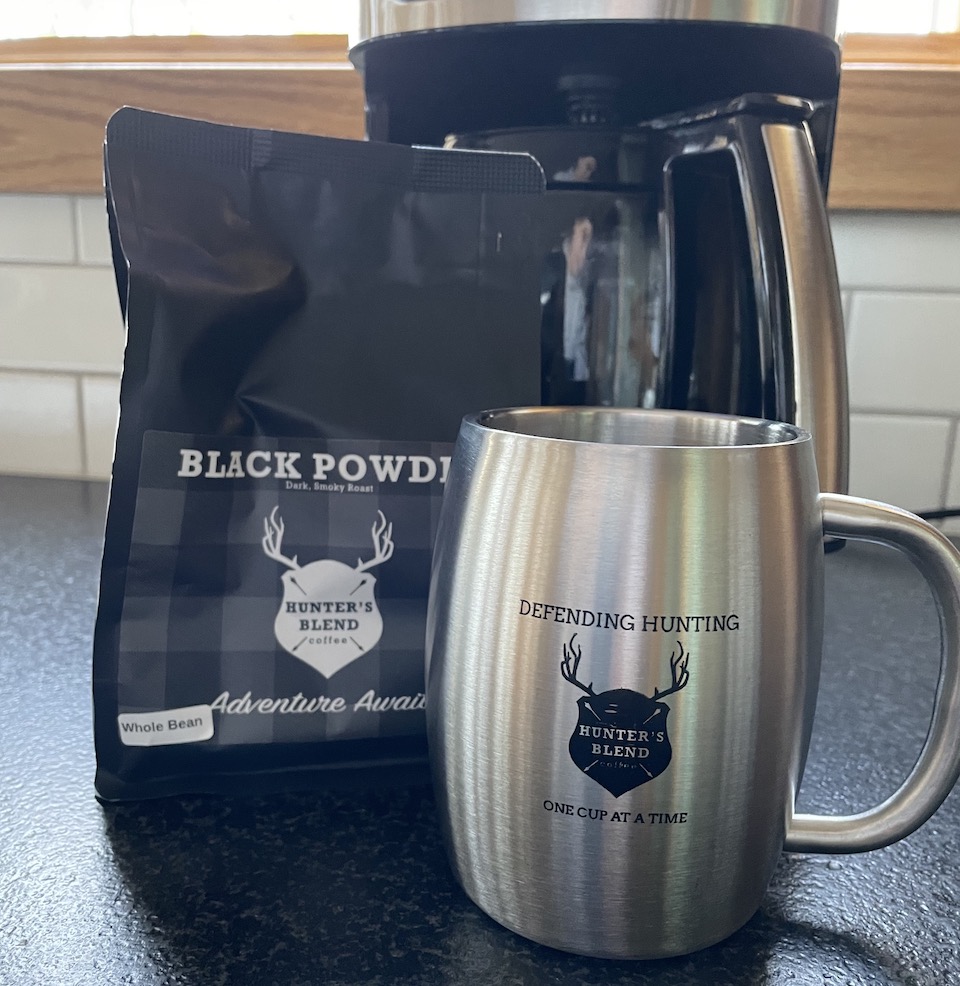
What we’re doing in-house here, is I’ve spent a lot of money for equipment to do a bean-to-bar, farm-direct chocolate bar with 70% dark chocolate. I’m just connecting now with a grower in East Africa, with macadamia nuts. And so, we need to make a product for hunters in the Hunter’s Blend line, that would combine macadamia nuts with the chocolate. So it would be like an energy bar; it might go the energy route or just your sweet tooth kind of thing. It’s not candy, it’s craft food.
I’m also a Q grader. There’s about 400 licensed Q graders in the US, and they’re all over the place now. But the idea is that we can take coffee – somebody in Indonesia, and somebody in Costa Rica and myself – and we can sample coffee and give it a score in ten different areas. A high score would be 100; a coffee in the 90s is almost unheard of. So when you get an 80 or an 82 or 84. Starbucks imports coffees starting at 75. All of our coffees score 84 or higher. When you go dark, you can make expensive coffee and cheap coffee – basically it tastes the same. It just tastes burnt.
It appears that your belief system drives you with this company.
I’m a Christ follower, first of all and that’s why we do everything we’re doing. Working in a nonprofit mission type agency – I have a Master’s in Missiology –so I think strategically how might people’s discontent with life and readiness to change make them receptive to the Gospel, or coming into a relationship with Jesus. How might that work?
We can lead them into a relationship to Jesus, but they’re still very poor. And the kingdom of God is kind of this holistic nature that it’s a joy to wake up in the morning. If your life stinks so bad that you don’t like waking up, what kind of a life is that? I think the kingdom part of it is a thriving community, but in poor people or poverty communities, they feel like God has abandoned them. But, when you can sit and talk to a whole town about how their coffee is amazing and it’s worth $3 a pound and all they’ve ever seen is a rip-off of 80 cents a pound. They look at each other and say, ‘Maybe we have something to offer.’
It’s a tangible way to relate side-by-side – not bottom up, but side-by-side. I need them and they need me. And any trade we do has to work for them, and it has to work for us.
You also support conservation organizations.
Yes, we work with the Rocky Mountain Elk Foundation, National Wild Turkey Federation and Scholastic Clay Target Program. But the one that we really love being involved with, and we’ve done a lot of fundraising for them and worked with them closely, is Sportsman’s Alliance, based out of Columbus, Ohio. The legal battles they’re fighting behind-the-scenes are incredible.
Watch for future alliances with conservation organizations.
Learn more about Hunter’s Blend Coffee.
Publisher/Editor Barbara Baird is a freelance writer in hunting, shooting and outdoor markets. Her bylines are found at several top hunting and shooting publications. She also is a travel writer, and you can follow her at https://www.ozarkian.com. View all posts by Barbara Baird